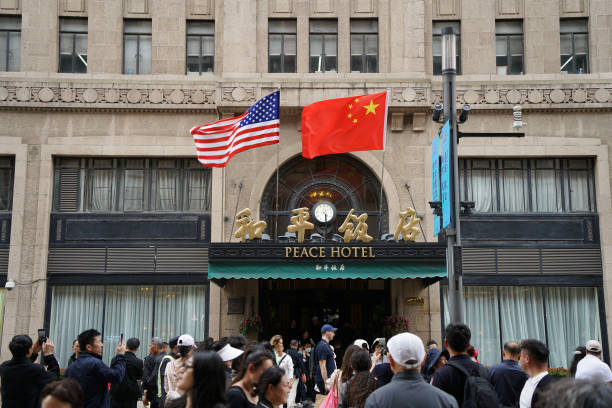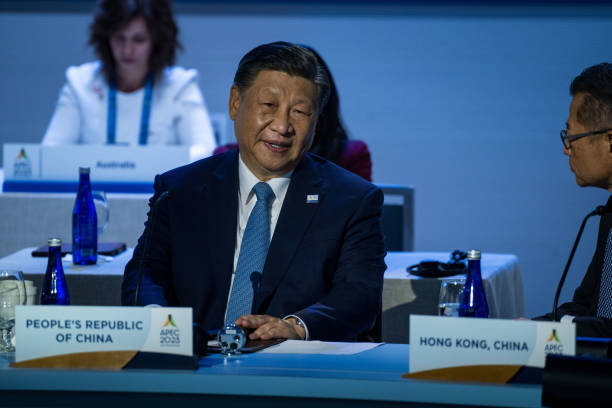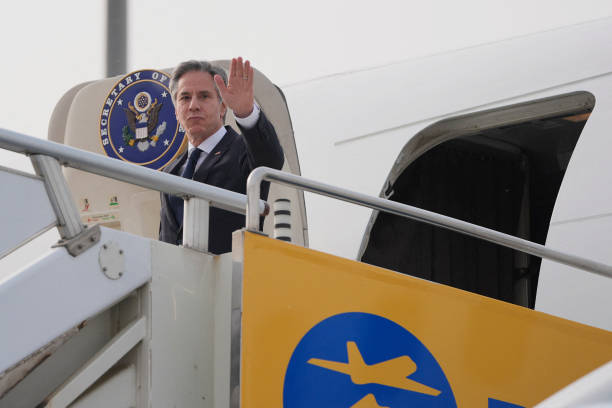In the heart of Beijing, amidst the bustling metropolis, a scene unfolds that might seem out of place: a group of athletes, both men and women, donning helmets and pads, engage in a game that’s typically associated with American cities like Baltimore rather than the Chinese capital.
Quarterback Mu Yang shouts the familiar cadence, and his teammate Henry Mu dashes across the field, emblematic of the growing presence of American football in China. Henry catches his breath and reflects on the challenges of the sport, emphasizing its physical and mental demands, echoing sentiments shared by many who have embraced this foreign game in a distant land.

For Americans, football is more than just a game; it’s a cultural touchstone, an expression of national identity. But for the Chinese players of the Beijing Cyclones, it represents something new, a bridge between cultures with only a few thousand participants in China but millions of fans.
This unlikely convergence of cultures on the football field mirrors broader efforts to foster “people-to-people” exchanges and cultivate cultural connections between the United States and China. Against a backdrop of strained diplomatic relations, both nations are seeking common ground, emphasizing shared interests rather than differences.
Since President Xi Jinping’s visit to San Francisco, there has been a noticeable shift in Beijing’s approach, with a softer diplomatic tone and increased efforts to attract foreign businesses to stimulate the Chinese economy. Similarly, the United States has shown a willingness to engage, with frequent diplomatic visits and signals of cooperation.

However, beneath the surface, tensions still simmer. The improved relationship is fragile, overshadowed by longstanding geopolitical rivalries and recent flashpoints. As Secretary of State Antony Blinken arrived on his second visit to China in less than a year, he steered a complex fraught with challenges.
Recent actions by both nations underscore the underlying tensions. The passage of a bill package in the US Senate, including increased military aid to Taiwan and measures targeting Chinese-owned companies like TikTok, elicited sharp reactions from Beijing, viewing them as attempts to contain China economically and geopolitically.
Against this backdrop, Blinken’s visit is laden with diplomatic significance and high stakes. Both sides will engage in frank discussions, addressing contentious issues such as Taiwan and economic policy, while striving to prevent further escalation.

Despite the diplomatic complexities, there remains hope for constructive engagement and mutual understanding. As athletes like Mu Yang and Henry Mu demonstrate on the football field, cultural exchange transcends politics. Their shared passion for the game serves as a reminder of the power of sports to foster connections and promote peace in a world often divided by conflict.
As the sun sets on the football field in Beijing, the players, regardless of nationality, unite in a common pursuit: the love of the game and the bonds it forges. In the end, perhaps therein lies the true essence of diplomacy – not in grand gestures or lofty rhetoric, but in the simple act of coming together, one game at a time.
